Bitter melon, scientifically known as Momordica charantia, is a tropical and subtropical plant of the Cucurbitaceae family, widely grown in Asia, Africa and the Caribbean. Bitter melon has many species that vary in shape and bitter taste. In Chinese, bitter melon (苦瓜) is also known as Liangguang (涼瓜), Banshengguang (半生瓜), Laipu Tao (癞葡萄), Jinlizhi (锦荔枝); the Japanese call it nigauri, gōya (苦瓜, ゴーヤ), and the Korean call it yeoju (여주).
The word "qua" (瓜) in "khổ qua" is also used to refer to melons, gourds, squash, and luffa in general. For example, "báo qua" is gourd; "đông qua " or "phận qua" is squash; "han qua " or " xây qua " is watermelon; "huang qua" is bi lao (lao); "con là qua " is cucumber; " thay qua" is luffa; "vương qua" is melon; "gia qua " is eggplant; "mộc qua " is papaya; "riệt bac qua" besides meaning pumpkin, this word is also used to refer to a type of white-skinned watermelon, called "nam qua", "uy qua" or "phien qua "... These words are rarely used today, and are only found in ancient texts.
In general, "bư qua" is a Southern dialect, transcribed in Sino-Vietnamese from the word 苦瓜 (kǔguā) in Chinese; and "mụp ưng" is a Northern dialect, also translated from the word 苦瓜. Both words were recorded in the book "Dictionarium latino-anamiticum" by Jean Louis Taberd (1838) and the book "Dai Nam Quoc Am Tu vi" by Huynh Tinh Paulus Cua (1895).
In Chinese, in addition to the word "qua" (瓜) mentioned above, there are also other words "qua" with different spellings and meanings. For example: "qua" (戈) is a spear, an ancient weapon; "qua" (瘑) is a pimple; " qua " (簻) is a horsewhip or stick; "qua" (髽) is a mourning bun woven from hemp used by women in ancient times; " qua " (騧) is a horse with a yellow body and a black snout; and "kham qua" (坩堝) is a pottery, a pot for melting gold and silver...
In Nom script, the word qua (戈) is also used to indicate time (yesterday), movement, direction (going through the door), observation (looking back and forth)... This is a word borrowed from the word 戈 in Chinese - a word that the Chinese also used to indicate "mace" (ancient weapons) or meaning "war", such as nhat tam can qua (日尋干戈), meaning "day of fighting".
The personal pronoun "qua" is a "pure Vietnamese" word, often used to mean "I" (the person in a superior position), written in two Nom characters, 戈 and 過, borrowed from Chinese by the method of imitation. For example, the story of Thach Sanh , written in Nom characters: " Leaving a tray for you, At home, when your mother and I have eaten" (lines 423 - 424).
After 1975, the personal pronoun "qua " was rarely used. In 2018, it suddenly "caused a storm", causing many people to discuss heatedly when businessman Dang Le Nguyen Vu called himself "qua" instead of the usual form of address "toi".
Source link










![[Video] Secret Garden and “Whisper of Love”](https://vphoto.vietnam.vn/thumb/402x226/vietnam/resource/IMAGE/2025/10/19/1760847088936_7131939085531-frame-at-0m6s-jpg.webp)


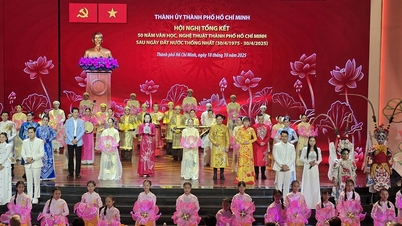










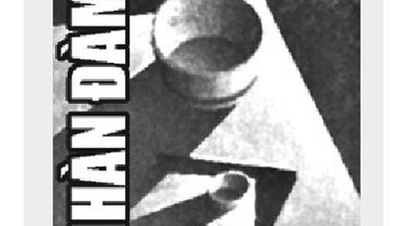






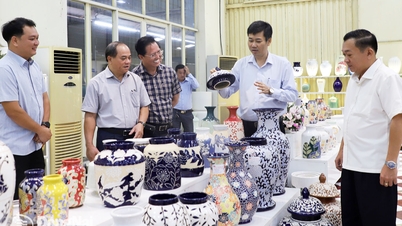











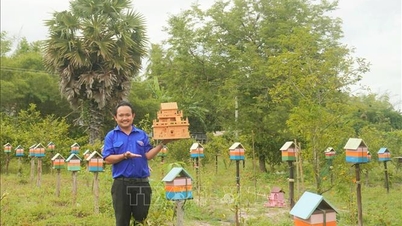




















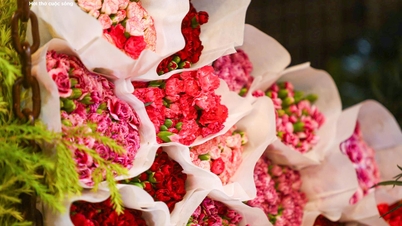
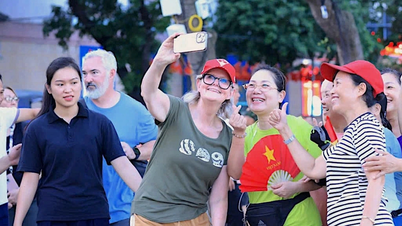









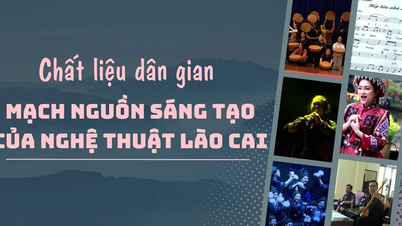

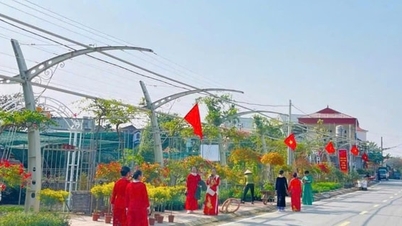




















Comment (0)